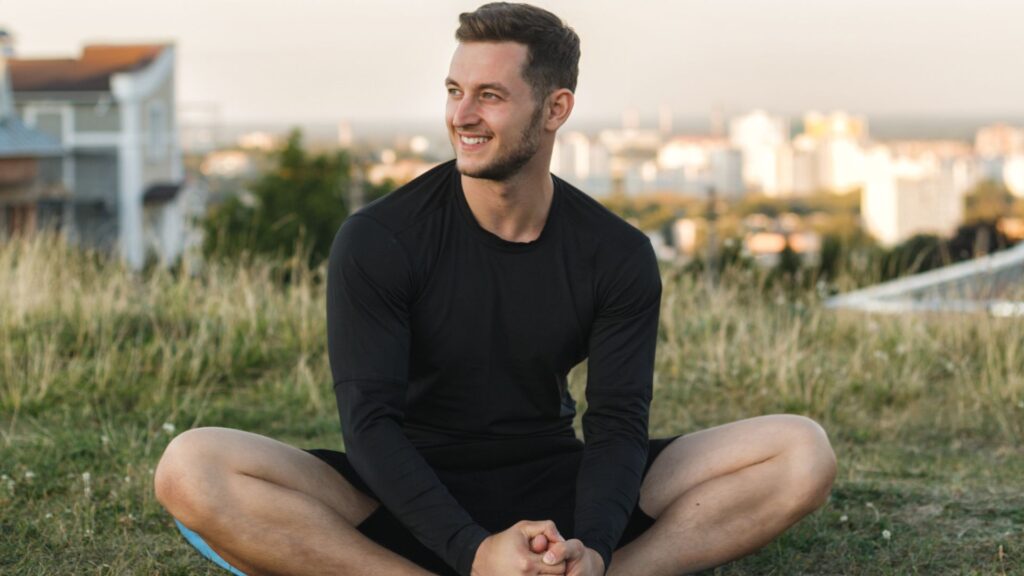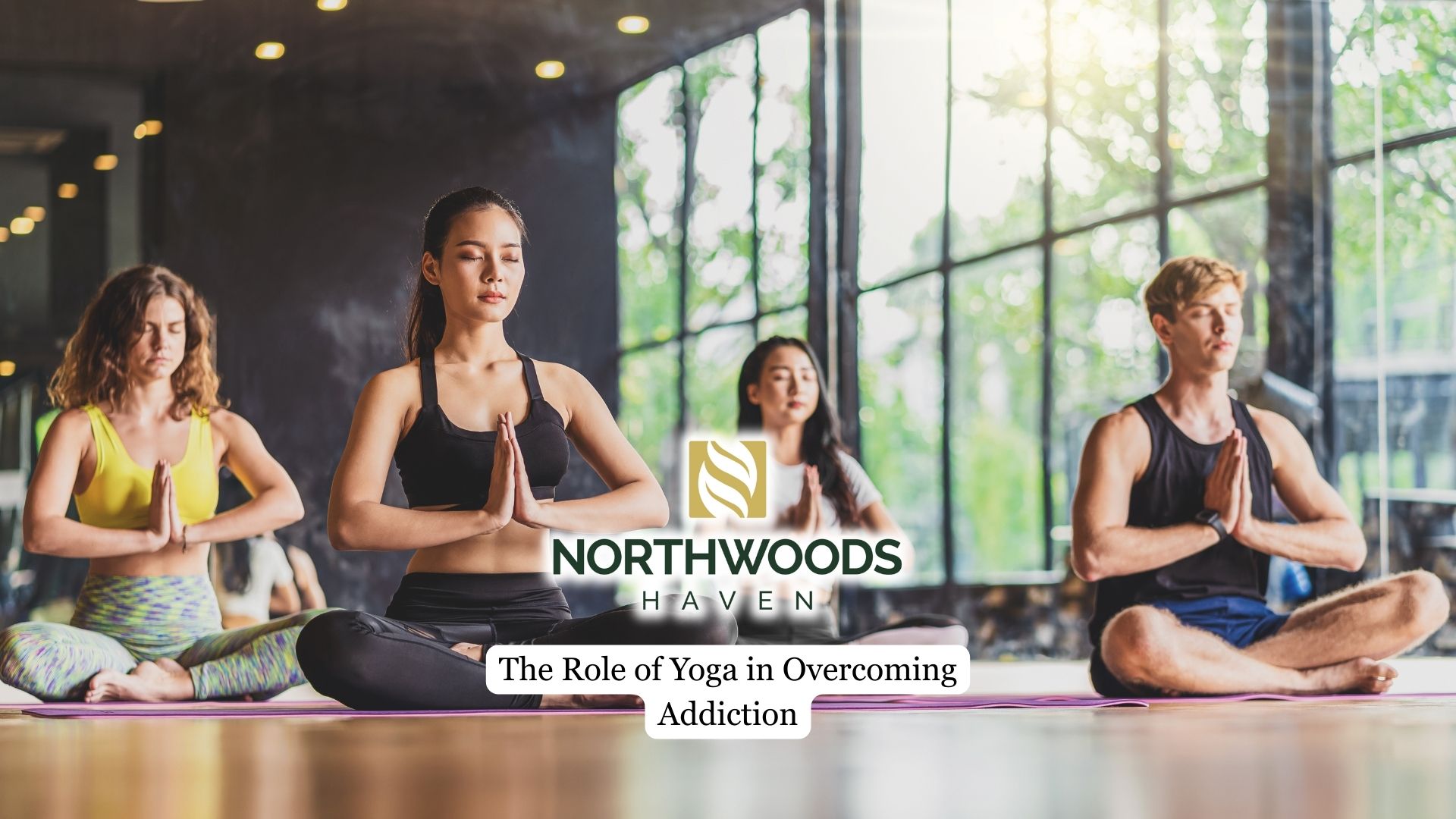Yoga has become an essential component of many addiction recovery programs worldwide. It is more than just physical exercise as it combines mindful movement, breathwork, and meditation to promote healing in both the body and mind.
For people striving toward sobriety, yoga offers practical tools to strengthen resilience in preventing substance use relapse. This article explores how yoga supports recovery and helps build a holistic foundation for lasting sobriety.
Stress Relief Through Mindful Movement
Stress is one of the leading triggers for relapse, and yoga’s calming techniques help regulate the nervous system. Deep, rhythmic breathing stimulates the vagus nerve, activating the parasympathetic nervous system, which is the body’s “rest and digest” mode. This lowers cortisol, the stress hormone that fuels cravings and impulsive behavior.
Yoga therapy for addiction recovery helps retrain the brain to move away from fight-or-flight reactivity and toward calmer, more intentional responses when practiced consistently. For those in recovery, this mental shift can make the difference between resisting temptation and returning to substance use.
Emotional Healing and Awareness
Addiction often arises from difficulties in managing emotions, and yoga directly supports the brain regions responsible for emotional regulation. Regular practice enhances activity in the prefrontal cortex (PFC), the area tied to self-control and decision-making, while calming overactivity in the amygdala, which fuels fear and stress responses.
This balance is achieved through several mechanisms. Yoga promotes neuroplasticity, increases gamma-aminobutyric acid (GABA) neurotransmitters that strengthen PFC function, improves cerebral blood flow, and lowers stress-related inflammation that can impair brain performance.
The integration of core components, breathwork, physical postures, and meditation creates measurable improvements in emotional stability, impulse control, and overall brain health. This rewiring allows individuals to pause, reflect, and respond more mindfully instead of automatically turning to substances.
Better Sleep Quality
Insomnia and disrupted sleep are common challenges in early recovery, and poor sleep increases impulsivity and relapse risk. Yoga promotes the release of melatonin, the hormone that regulates sleep cycles, while lowering hyperarousal in the nervous system.
Practices like yoga nidra or gentle evening stretches reduce racing thoughts, slow heart rate, and prime the brain for restorative sleep. With better sleep, the prefrontal cortex functions more effectively, improving decision-making and reducing vulnerability to cravings.
Detoxifying the Body Naturally
Substance use places significant strain on the liver, kidneys, and immune system. Yoga’s twisting postures and deep breathing increase circulation, stimulate the lymphatic system, and improve oxygen delivery to tissues.
This enhances the body’s natural detoxification processes. Sweating in practices like hot yoga further supports toxin elimination while boosting endorphins, helping the body recover physically from addiction’s damage.
Curbing Cravings and Building Inner Peace
Cravings are driven by the brain’s reward system, which becomes dysregulated by substance use. Yoga and meditation practices increase dopamine availability in healthier, more sustainable ways, providing a sense of reward without substances.

At the same time, this exercise elevates GABA, which reduces anxiety and calms neural activity. It also helps individuals observe cravings without reacting to them, strengthening impulse control and reinforcing long-term sobriety.
Popular Types of Yoga for Addiction Recovery
Not all yoga is the same, and different styles offer unique benefits for people in recovery. Choosing the right practice can help address specific challenges.
Hatha Yoga
Hatha focuses on foundational postures, controlled breathing, and meditation. Its slower pace makes it ideal for beginners, helping rebuild strength, restore balance, and promote mental clarity. The emphasis on breathwork also activates the parasympathetic nervous system, reducing anxiety and calming cravings.
Vinyasa Yoga
Often called “flow yoga,” Vinyasa links breath to continuous movement. This dynamic style builds stamina, improves cardiovascular health, and stimulates the release of endorphins, the brain’s natural mood boosters. For individuals in recovery, the rhythm of movement and breath also helps reduce restlessness and channel excess energy in a healthy way.
Yin Yoga
Yin involves holding poses for several minutes at a time, targeting deep connective tissues and joints. This stillness fosters patience, mindfulness, and emotional release. By quieting the nervous system, Yin yoga reduces anxiety and teaches individuals to sit with discomfort, a valuable skill when facing cravings or emotional triggers.
Hot Yoga / Bikram Yoga
Practiced in heated rooms, these styles promote intense sweating, which supports detoxification and circulation. The heat also challenges concentration and endurance, building resilience that translates beyond the mat. Many people in recovery find hot yoga especially effective for increasing focus, flushing toxins, and improving mental toughness.
Yoga Nidra (Yogic Sleep)
Yoga Nidra is a guided meditation practice that brings the body into a deep state of relaxation while the mind remains alert. Studies show it lowers cortisol, reduces symptoms of trauma, and improves sleep quality. For those coping with anxiety, PTSD, or insomnia in recovery, it can be a gentle but powerful tool for restoring balance.
Final Thoughts from Northwoods Haven Recovery
Yoga is not simply a form of physical activity but a complementary practice that supports the brain-body systems often disrupted by addiction. The benefits of this practice make it a valuable addition to traditional therapeutic approaches, offering individuals practical tools for managing cravings and reducing relapse risk.
At Northwoods Haven, our addiction yoga therapy sessions in Minneapolis are integrated into a structured recovery environment. Led by trained instructors, these sessions emphasize self-awareness, emotional steadiness, and gradual progress. The goal is to provide clients with evidence-informed practices that support long-term recovery alongside medical and therapeutic treatment.



